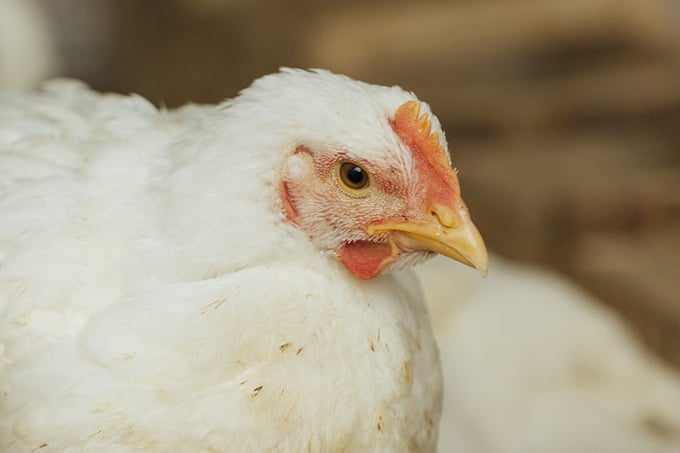November 26, 2025 | 04:37 GMT +7
November 26, 2025 | 04:37 GMT +7
Hotline: 0913.378.918
November 26, 2025 | 04:37 GMT +7
Hotline: 0913.378.918

Professor Rowland Kao from the Roslin Institute: “These recommendations are priority measures based on solid scientific evidence, can be put into practice readily." Photo: Freepik
The call comes from the task force on highly pathogenic avian flu, which was formed under the auspices of Defra’s Science Advisory Council.
The task force has also recommended developing enhanced surveillance systems for severe strains of bird flu to understand their circulation in wild birds to monitor threats to wild species and ongoing risks to domestic birds.
And it has also advised the government to enhance the monitoring of wild bird populations and improve the evidence base around potential interventions to reduce the risk of severe strains to wild birds.
Other recommendations in the report relate to date records, such as enhancing demographic data recorded in the Great Britain Poultry Register of kept birds and facilitating the acquisition of data to help estimate rates of severe strains transmission between kept bird premises.
In addition, the task force recommended that Defra improve its data acquisitions to help model future outbreaks in wild birds and to enable simpler procedures for generating data around severe strains.
The scientists also suggest Defra adds to its evaluations of environmental management developments with assessments of the potential impact of severe strains on vulnerable species.
As a guiding principle, Defra should consider that laboratory and surveillance capacity be designed to deal with more frequent and intense outbreaks in the future.
Professor Rowland Kao, one of 3 science specialists from The Roslin Institute on the task force, said: “These recommendations are priority measures based on solid scientific evidence, can be put into practice readily, and will have the greatest potential for managing future strains of bird flu.”
The Roslin Institute is a beneficiary of the latest £4 million investment into 10 innovative projects focused on international animal health research from the Biotechnology and Biological Sciences Research Council and Defra.
Professor Paul Digard is the UK principal investigator for a project that looks at the identification of factors driving the emergence and spread of avian influenza viruses with zoonotic potential.
(PW)

(VAN) Brazil's COP30 presidency pushed through a compromise climate deal on Saturday that would boost finance for poor nations coping with global warming but that omitted any mention of the fossil fuels driving it.

(VAN) Poultry farmers in the UK have been warned that they could face one of the worst winters yet for bird flu.

(VAN) Prices of main-crop paddy have risen sharply, with jasmine rice hitting 16,100 baht per tonne — the highest level in years.

(VAN) In Brazil, FAO unveiled a series of reports and initiatives showing how sustainable agrifood systems are a solution to the climate crisis.

(VAN) With names like neodymium and dysprosium, rare-earth elements sound exotic — and their perceived scarcity has only added to the mystique.

(VAN) In a new study published in Trends in Biotechnology, researchers used a gene-editing technology called CRISPR to increase a fungus's production efficiency and cut its production-related environmental impact by as much as 61%- all without adding any foreign DNA.

(VAN) A top official in Beijing’s Cop delegation says China is committed to clean energy – but US’s absence is a problem.